Islam is one of the largest religions in the world, with over a billion followers. Founded in the 7th century by the Prophet Muhammad, Islam is based on the teachings of the Koran, the holy book of Muslims. This text seeks to introduce you to the basics of Islam, including the fundamental beliefs and the five pillars that constitute the acts of faith that a Muslim must perform.
I. Fundamental Beliefs of Islam
1. Oneness of God (Tawheed)
At the heart of Islam is the belief in the Oneness of God, known as Tawhid. Muslims believe in one God, Allah, who is eternal, omnipotent, omniscient and merciful. The Tawhid is the foundation of the Muslim faith, it declares that nothing and no one can be equal to God. It is such an important belief that denying it is considered the greatest sin in Islam.
2. The Prophets (Nubuwwa)
Prophets are another fundamental belief in Islam. Muslims believe that God has sent prophets to all nations throughout history to guide mankind to the truth. In total, Islam recognizes 25 prophets, ranging from Adam, considered the first man and the first prophet, to Muhammad, considered the last of the prophets. Muslims believe that Muhammad's revelation is the most complete and final.
3. Sacred Books (Kitab)
Muslims believe that God spoke to humans through divine revelations, which were recorded in holy books. The Quran is the holy book of Islam, considered the literal word of God. Muslims believe that the Quran was revealed to Muhammad by the angel Gabriel. Other sacred books recognized in Islam include the Torah revealed to Moses, the Psalms given to David, and the Gospel given to Jesus. However, Muslims believe that these texts have been altered over time and only the Quranic version has remained intact.
4. Angels (Mala'ika)
Muslims believe in the existence of angels, considered to be beings created from light. Angels are servants of God, they have no free will and only carry out God's commands. Angels have a variety of responsibilities, ranging from delivering revelations to prophets to recording the actions of individuals. The angel Gabriel, for example, is considered the angel of revelation because he transmitted the Koran to Muhammad.
5. Judgment Day (Qiyamah)
Muslims strongly believe in the existence of an afterlife and a day of reckoning. They believe that all individuals will be resurrected to be judged by God based on their actions in this life. Those who have led a righteous and just life will be rewarded with heaven, while those who have committed sins and rejected God will be punished in hell.
II. The 5 pillars of Islam
1. The profession of faith (Shahada)
The Shahada is the first pillar of Islam and is considered the declaration of faith. It is worded as follows: "There is no god but God and Muhammad is his prophet." By pronouncing this sentence with conviction, a person enters the Muslim community.
2. Ritual prayers (Salat)
Salat are the ritual prayers that Muslims are required to perform five times a day: at dawn, mid-afternoon, late afternoon, after sunset and in the evening. evening. Each prayer includes readings from the Quran, supplications to God, and physical movements such as prostration and bowing.
3. Alms or charity tax (Zakat)
Zakat is a fixed percentage of a person's wealth that must be given to the poor and needy. It is usually set at 2.5% of savings and is used to purify the person's wealth and support the community.
4. Fasting during Ramadan (Sawm)
Sawm is the fast that takes place during the month of Ramadan, the ninth month of the Islamic calendar. During this month, Muslims are required to refrain from eating, drinking and other physical activities from sunrise to sunset. Fasting is a form of cleansing, an opportunity to draw closer to God, and a way to remember those less fortunate.
5. The pilgrimage to Mecca (Hajj)
Hajj is the pilgrimage to Mecca that all Muslims are required to perform at least once in their lifetime, provided they have the financial and physical means to do so. The Hajj takes place during the last month of the Islamic calendar and includes a series of rites, including circumambulation around the Kaaba, throwing stones at a column representing Satan, and standing on Mount Arafat.
III. Chart of fundamental beliefs of Islam and the 5 pillars
| Belief/Practice | Description |
|---|---|
| Tawheed | Belief in the Oneness of God |
| Nubuwwa | belief in the prophets |
| Kitab | belief in sacred books |
| Mala'ika | belief in angels |
| Qiyamah | belief in the day of judgment |
| Shahada | The profession of faith |
| Salat | The ritual prayers |
| Zakat | Alms or charity tax |
| Sawm | Fasting during Ramadan |
| Hajj | The pilgrimage to Mecca |
Conclusion
Islam is a rich and complex religion based on diverse beliefs and practices. Whether you're a believer looking to deepen your faith or someone just curious to learn more, we hope you found this guide to the basics of Islam helpful. For more information, feel free to explore other resources or consult an imam or qualified Muslim scholar.
FAQs
-
What are the basic principles of Islam?
- Islam is based on the belief in one God (Tawhid), in the prophets (Nubuwwa), in the sacred books (Kitab), in the angels (Mala'ika), and in the day of judgment (Qiyamah). Muslims must also adhere to the five pillars of Islam, which are profession of faith (Shahada), ritual prayers (Salat), almsgiving (Zakat), fasting during Ramadan (Sawm), and pilgrimage to Mecca (Hajj).
- Islam is based on the belief in one God (Tawhid), in the prophets (Nubuwwa), in the sacred books (Kitab), in the angels (Mala'ika), and in the day of judgment (Qiyamah). Muslims must also adhere to the five pillars of Islam, which are profession of faith (Shahada), ritual prayers (Salat), almsgiving (Zakat), fasting during Ramadan (Sawm), and pilgrimage to Mecca (Hajj).
-
What is the most important belief in Islam?
- The most important belief in Islam is Tawhid, which is the belief in the oneness of God. Muslims believe in one God, Allah, who is eternal, omnipotent, omniscient and merciful. Tawheed is the foundation of the Muslim faith.
- The most important belief in Islam is Tawhid, which is the belief in the oneness of God. Muslims believe in one God, Allah, who is eternal, omnipotent, omniscient and merciful. Tawheed is the foundation of the Muslim faith.
-
What are the five pillars of Islam?
- The five pillars of Islam are the profession of faith (Shahada), ritual prayers (Salat), almsgiving (Zakat), fasting during Ramadan (Sawm), and the pilgrimage to Mecca (Hajj). These pillars are the acts of faith that a Muslim must perform.
- The five pillars of Islam are the profession of faith (Shahada), ritual prayers (Salat), almsgiving (Zakat), fasting during Ramadan (Sawm), and the pilgrimage to Mecca (Hajj). These pillars are the acts of faith that a Muslim must perform.
-
What is the Quran?
- The Quran is the holy book of Islam, considered the literal word of God. It is made up of 114 chapters, or suras, which are divided into verses. The Quran is the primary source of Islamic law and offers guidance on all aspects of life.
- The Quran is the holy book of Islam, considered the literal word of God. It is made up of 114 chapters, or suras, which are divided into verses. The Quran is the primary source of Islamic law and offers guidance on all aspects of life.
-
What is Hajj?
- Hajj is the pilgrimage to Mecca that all Muslims are required to perform at least once in their lifetime, provided they have the financial and physical means to do so. The Hajj takes place during the last month of the Islamic calendar and includes a series of rites, including the circumambulation around the Kaaba.



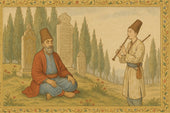



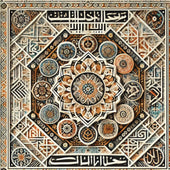
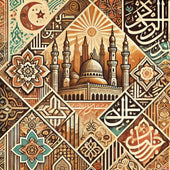

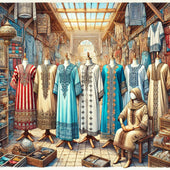
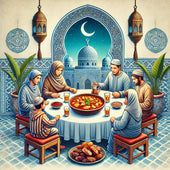


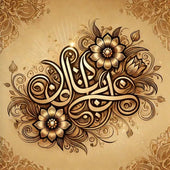
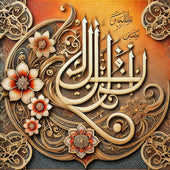
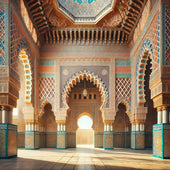
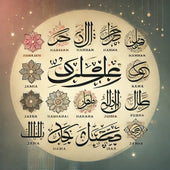
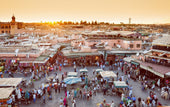


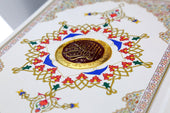

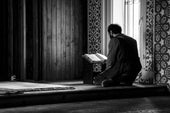











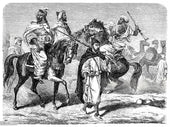
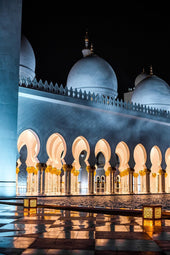






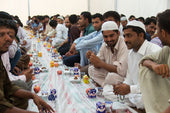




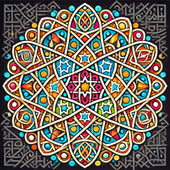
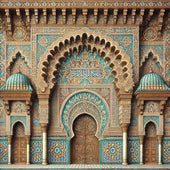
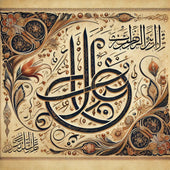


























































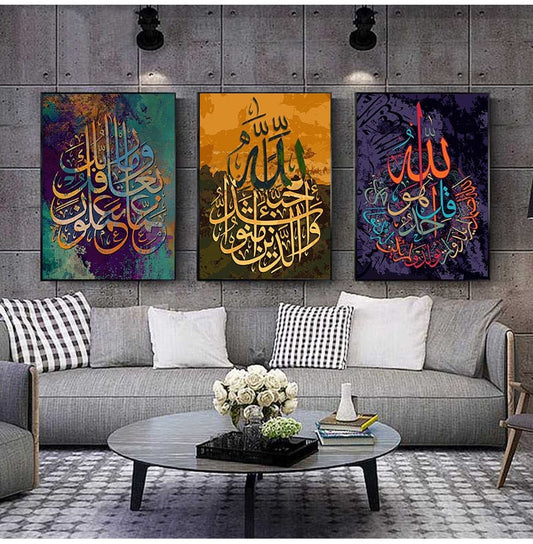


4 comments
Très clair et très instructif, bien résumé pour ensuite nous donner envie de plus nous nourrir. Shokran Ya ALLAH SWT pour ta miséricorde et ta patience🤲🏼🙏🏼
Maintenant l’islam ma religion Muhammad son messager l’arabe ma langue.
Que Allah nous protèges et de santé
J’ai ma religion de tout ma âme